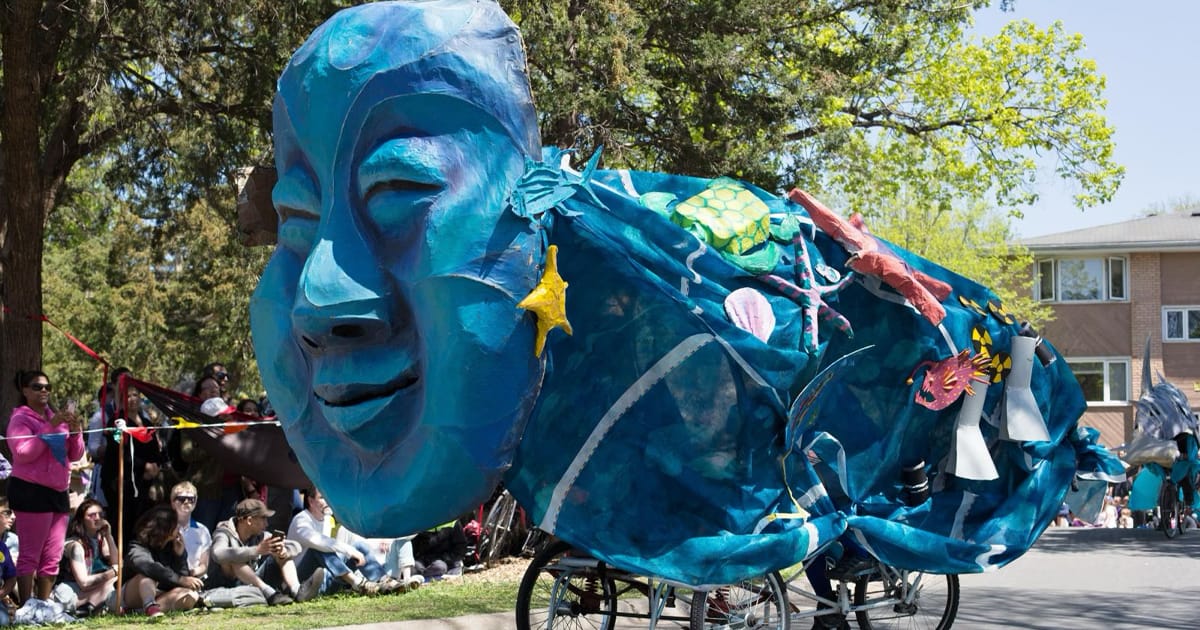Interview by Talia Moreno | Op-Ed by Jon Carlson | October 25, 2025
In a city where loyalty is a language and nuance can be a liability, Becka Thompson has done something increasingly rare in local politics: she’s compelling because she’s competent. Thompson’s story begins—and deliberately returns—to Ward 12, a stretch of South Minneapolis along the Mississippi where working-class memory coexists with waves of progressive reinvention. She was born there, left to chase art and ambition, and came home to raise her son in the neighborhood that shaped her. Her résumé reads less like a politician’s and more like a case study in discipline: a Certificate in Acting from Juilliard, a B.S. in Mathematics from the University of Minnesota, capped by dual master’s degrees from Augsburg University—an M.Ed. in Mathematics followed by an M.B.A. in Finance. That combination—discipline, empathy, and analytics—isn’t rhetorical flourish. It’s the foundation of her politics. For more than twenty years she taught mathematics in classrooms where students moved as frequently as the seasons and teachers served not only as educators but also as counselors, translators, and triage nurses. Later, as the Commissioner representing District 2 on the Minneapolis Park and Recreation Board, she chaired the Administration and Finance Committee, learning that ideals survive only if budgets do.
“Budgets,” she once said, “not slogans, determine whether ideals survive.”
On October 3 at 11:59 a.m., Becka Thompson resigned that seat—an act timed with characteristic precision—to re-establish residency in her family home in Ward 12 and run for City Council. The move was both procedural and personal—the gesture of someone who still believes rules matter.
The Shirt That Says It All
Becka Thompson sometimes wears a red T-shirt modeled on the 1985 Coca-Cola logo. Instead of Coke Classic, it reads Demo-Crat Classic. In 1985, when Coca-Cola reformulated its flagship drink, the backlash was swift and visceral. Consumers didn’t merely dislike New Coke—they felt betrayed. Within months, the company resurrected the original recipe, branding it Coke Classic. The episode entered marketing folklore: when a formula strays too far from what people trust, they demand the taste of home. Thompson’s shirt plays on that nostalgia but doubles as political shorthand. For decades, Minneapolis Democrats—everyday folks like parents, teachers, nurses, small-business owners, and social-service workers—shared a familiar civic flavor: compassion balanced by competence, progress tempered by pragmatism. In recent years, that formula has changed. The city’s DFL identity has absorbed the ideology of the Democratic Socialists of America, creating what some lifelong Democrats see as New Coke politics—different taste, familiar label. Demo-Crat Classic becomes a gentle rebellion, an insistence that caring about equity doesn’t require abandoning accountability. It’s campy enough for a laugh, serious enough to make a point. Beneath the humor lies a plea:
“Please don’t make me choose between empathy and effectiveness.”
How the Center Became the Fringe
In today’s Minneapolis, it doesn’t take much for a centrist to be mistaken for a reactionary. When a movement’s center of gravity shifts left, yesterday’s mainstream suddenly appears conservative—not because the person moved, but because the reference point did. Becka Thompson has felt that inversion. Critics have labeled her a heretic for daring to challenge the DSA-led left—a charge that reveals more about their radicalism than her own politics. Behavioral psychology makes sense of it: out-group bias flattens nuance into identity, and online ecosystems reward moral signals over material results. In that environment, outrage becomes currency. But speak with Becka Thompson for five minutes and ideology dissolves. She talks about line items, staffing models, police overtime, teacher pensions, arts funding. She is what older generations once called a functional liberal—the kind of Democrat who can actually make progressive ideals work.
“She’s less culture warrior than classroom manager,” one supporter said. “Less ideology, more attendance sheets and balance sheets.”
A Hero’s Arc, Minus the Myth
Strip away the campaign graphics and her path reads like a secular hero’s journey. She departs for Juilliard and Los Angeles, pursuing her craft with the discipline that only art can teach. She is initiated in classrooms that test her patience and budgets that test her ideals. She returns home to Ward 12, trading position security for responsibility. She endures the mockery, the parody sites, the easy mischaracterizations that come with standing slightly apart from the prevailing winds. And, finally, she offers the gift: competence as civic virtue—transparent budgeting, reliable infrastructure, and the conviction that compassion deserves a functioning delivery system.
The Contrast: Experience and Apparatus
Her main opponent, incumbent Aurin Chowdhury, 28, is charismatic, fluent in the DSA-DFL lexicon, and thoroughly networked within the city’s activist infrastructure. Her coalition has energy, endorsements, and movement credibility. But under that apparatus, the city has drifted—ballooning police overtime, delayed transparency, and a budget that increasingly feels improvised. Becka Thompson, by contrast, runs lean: no DFL endorsement, no vast machinery. A teacher, a mother, a civic technocrat making the case for functionality as moral duty. It’s not activists versus technocrats; it’s apparatus power versus applied experience—two visions of competence competing for control of Minneapolis’s operating system. And the stakes are measurable: millions in waste and inefficiency that burden taxpayers while starving the very programs progressives claim to champion.
“A compassionate city,” Becka Thompson says, “has to be a functioning one first.”
Why Her Story Resonates
Ward 12 voters tend to like their politicians the way they like their neighbors—earnest, fair, a little self-effacing. Thompson fits that rhythm. She talks about keeping kids safe, taxes reasonable, and parks funded. She wants a city that can afford its compassion—a government that can deliver on empathy rather than merely espouse it. That’s why the Demo-Crat Classic shirt works. Beneath its humor lies fatigue: a sense that Minneapolis has lost the civic flavor that once united progressives and pragmatists alike. The city doesn’t need New Coke. It needs to rediscover the taste that built trust. And perhaps that’s the subtle brilliance of Becka Thompson’s appeal. She isn’t promising a revolution. She’s offering a restoration of balance, competence, and civic faith.
“A compassionate city has to be a functioning one first.”
That, in the end, is the taste people want.
About the author: Jon Carlson is Executive Editor for MPLS Page, and a veteran journalist and filmmaker who has spent more than three decades covering natural sciences, culture, and public policy in Minneapolis.
Disclaimer: The views and opinions expressed in this article are those of the author and interviewee and do not necessarily reflect the official policy or position of any organization, publication, or media outlet. The information presented is based on publicly available sources and direct interviews. This article is intended for informational and editorial purposes only and should not be construed as an endorsement of any candidate or political campaign.






